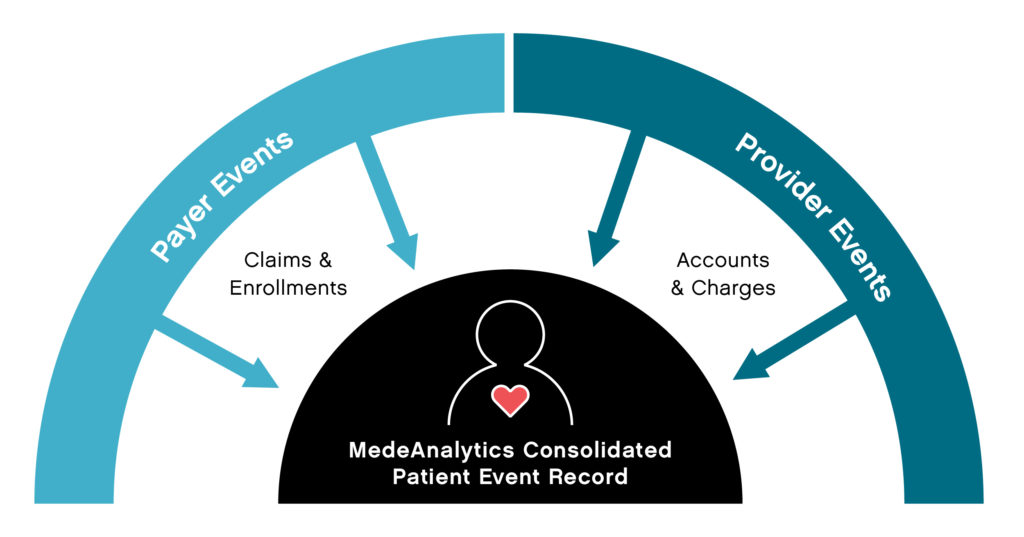
Did you know that a whopping 30% of the world’s data is healthcare related? 1
Every patient has a plethora of data associated with their health record, which can include decades of enrollments, claims, accounts and charges. Much of this data is not housed within the same institutional, facility or provider database and can be cumbersome and time-consuming to pull together, leaving room for reporting and processing errors. Finding ways to aggregate patient data and maintain it in one place is important because it creates the ability to have immediate, actionable insights, which allows payers and providers to make more informed decisions that save time and money and improve patient outcomes.
Yet, payers and providers traditionally maintain their own slices of patient data, which include enrollment and claims for payers and accounts and charges for providers. Some data elements are unique to payers and some to providers, but much of it overlaps, referencing the same patient events. By rolling up all pertinent claims for an event and connecting to the accounts and charges, payer and provider data can be linked to a single patient event record.

Linking data in this way allows for more collaboration and cohesive information sharing between payers and providers. Providers get access to data that extends beyond the walls of their organization. Payers get much more timely and complete information on their members, bypassing claim lag times. The new data relationship makes available a whole new set of patient-centric reports that were not possible before. Patient event reporting, for example, can provide true insights into mortality, readmissions, hospital-acquired conditions, which are especially critical to ACOs, IDNs and payvider (provider-owned health plans) organizations.
Succinct collection of data and timely dissemination of actionable insights is essential to enable efficient communications between doctors, hospitals, Accountable Care Organizations (ACOs) and health plans. When data is connected, you can accelerate universal speed to insights so that both payers and providers can make smarter decisions, reduce costs, increase organizational efficacy and improve patient outcomes. Learn more.
Get our take on industry trends
Three ways to improve patient retention in recovery programs
Deaths from drug overdoses have increased from ~1 per 100,000 in 1999 to ~4 per 100,000 in 2020.1 The introduction…
Read on...ACOs and value-based care in 2024: Four key questions and answers
ACOs have long been at the front lines of value-based care efforts. In a recent LinkedIn Fireside Chat, Andy Dé…
Read on...How is telehealth impacting STARs performance?
STAR scores are a critical component of success for Medicare Advantage Plans, MSSP and REACH ACOs, driving them to maximize…
Read on...Brief introduction to contract administration
At the top of the year, Rahul Sharma, Chief Executive Officer, and Lynn Carroll, Chief Operating Officer and Cofounder of…
Read on...


